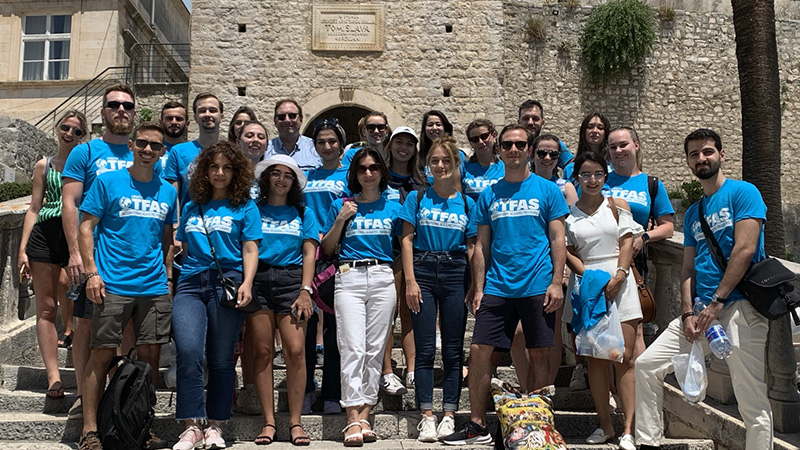
TFAS International programs bring together students from around the world as they explore fundamental issues related to economic and political liberty. Despite challenges and travel restrictions brought on by the coronavirus pandemic, TFAS was thrilled to welcome 25 young leaders from the Americas, Europe, Central Asia and the Middle East to TFAS Croatia 2021.
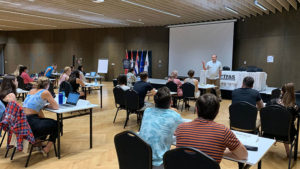
The two-week program was held at the University of Dubrovnik from July 17-31 and examined the economic foundations of a free society and how governments respond to crises like the COVID-19 pandemic. The cohort representing 13 countries traveled to Dubrovnik for the unique experience and immersed themselves in Croatian culture.
Nikoloz Ckhaidze ’21, a student at the International Black Sea University in Tbilisi, Georgia, shared that the program gave him a new perspective on the world by allowing him to have important conversations on transnational issues with his peers.
“The experience in Croatia was unlike anything I have experienced before,” Ckhaidze said. “The overall atmosphere and the conversations that I had with the staff, professors and my peers were remarkable.”
A native of the country of Georgia, Ckhaidze recommends TFAS programs to young people who hope to transform their worldview and gain exposure to the ideas of liberty.
“I was surrounded by hardworking people and ambassadors of liberty and, for me, that is the highest honor,” Ckhaidze shared. “You can already [see] how effective this organization is in terms of changing the view of youth for the better. I encourage everyone to take part in TFAS programs.”
I was surrounded by hardworking people and ambassadors of liberty and, for me, that is the highest honor.” – Nikoloz Ckhaidze ’21
CHANGING THE WORLD THROUGH ECONOMIC EDUCATION
One of the most unique aspects of TFAS programs is the focus on economic education. Since establishing the first international program in Prague in 1993, TFAS has worked to instill an understanding of the economic way of thinking in courageous young leaders around the world.
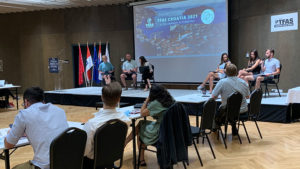
California State University, San Marcos professor Dr. Ibrahim Al-Marashi ’01 and Fayetteville State University professor Dr. Nikolai Wenzel joined the Croatia program to teach the course modules on political and economic liberty. Their classes specifically examined the impact of various government policies on public health crises and how the economic way of thinking can contribute to understanding leaders’ responses to crises.
Corvinus University of Budapest student Zita Vagujhely ’21 said the courses allowed her to expand her knowledge of economic and political issues while learning new insights from her peers.
“I always wanted to meet people from all over the world, and TFAS makes this unique opportunity possible,” Vagujhely said. “Not only was I surrounded by motivated and enthusiastic young people, but I also was able to widen my knowledge on a theoretical and practical sphere on current political and economic problems.”
I always wanted to meet people from all over the world, and TFAS makes this unique opportunity possible. Not only am I surrounded by motivated and enthusiastic young people, but I also was able to widen my knowledge on a theoretical and practical sphere on current political and economic problems.” – Zita Vagujhely ’21
In addition to their courses, students also explored the city through a variety of excursions and events. The program began with a visit to the island of Korčula where the group toured Old Town, the Cathedral of St. Mark and the town walls, followed by a welcome dinner the next day. On day three, students experienced Croatian culture with an excursion to Old Town Dubrovnik, known as one of the world’s most preserved medieval cities.
Participant Nuray Mombekova ’21 shared that learning the Adriatic town’s history with her cohort expanded her mind and helped her grow as a leader.
“The city, people, history and culture of Croatia are something that each person, especially a curious and growing leader, should experience and explore,” the Kazakhstan native said.
CIVIL CONVERSATIONS LEAD TO HUMAN FLOURISHING
A key component of all TFAS International programs are the Cultural Presentations, which allow students from different areas of the world to learn new traditions and cultural perspectives from their peers across the globe. TFAS Croatia participants from countries like Colombia, Spain, Ukraine and Lebanon gathered to highlight their cultures with song and dance, history and cuisine. Mombekova said she was thrilled to develop new friendships with young leaders from around the world through learning these special traditions.
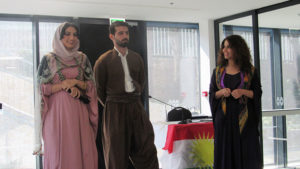
“All the participants with diverse backgrounds added something special to this program,” she said. “Having the ability to network with well-educated and experienced young leaders is always crucial, but when they become your friend, it is another indescribable feeling.”
Students were able to utilize these newfound perspectives in the second week of the program during a series of three debates hosted by Dr. Wenzel. The group deliberated and discussed topics, including the positive and negative sides of the Belt and Road Initiative, whether state governments should temporarily suspend patents of all COVID-19 vaccine formulas, and whether private media companies and the government should censor certain forms of speech.
The debate sessions were followed by a Model United Nations-style simulation on “Global Health Vaccination in the Face of the Delta Variant” hosted by Dr. Al-Marashi. Participants assumed the roles of different member countries in the World Health Organization and presented strategies for dealing with the ongoing challenges of the COVID-19 pandemic.
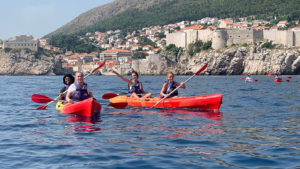
TFAS programs regularly provide opportunities for students to engage in civil discourse on topics related to individual liberty, free speech and limited government. Director of International Programs Alexander Archuleta shared that the debates and simulation, in addition to the program’s coursework, provided a well-rounded experience for the students.
“Over the course of the 14 days in Dubrovnik, our participants debated everything from lockdowns to economic sanctions, censorship in social media, and mask and vaccine mandates,” Archuleta said. “The faculty and staff were proud to witness the genuine desire to hear and understand one another amidst a wide range of views and conscience.”
This summer’s TFAS Croatia class joined the thousands of young leaders who have completed a TFAS International program and gained an expanded network of global contacts, an understanding of individual freedom, and an international experience to advance their educational and professional development.
For a closer look at TFAS Croatia 2021, watch the video recap below. To learn more about TFAS International programs, visit TFASInternational.org.

